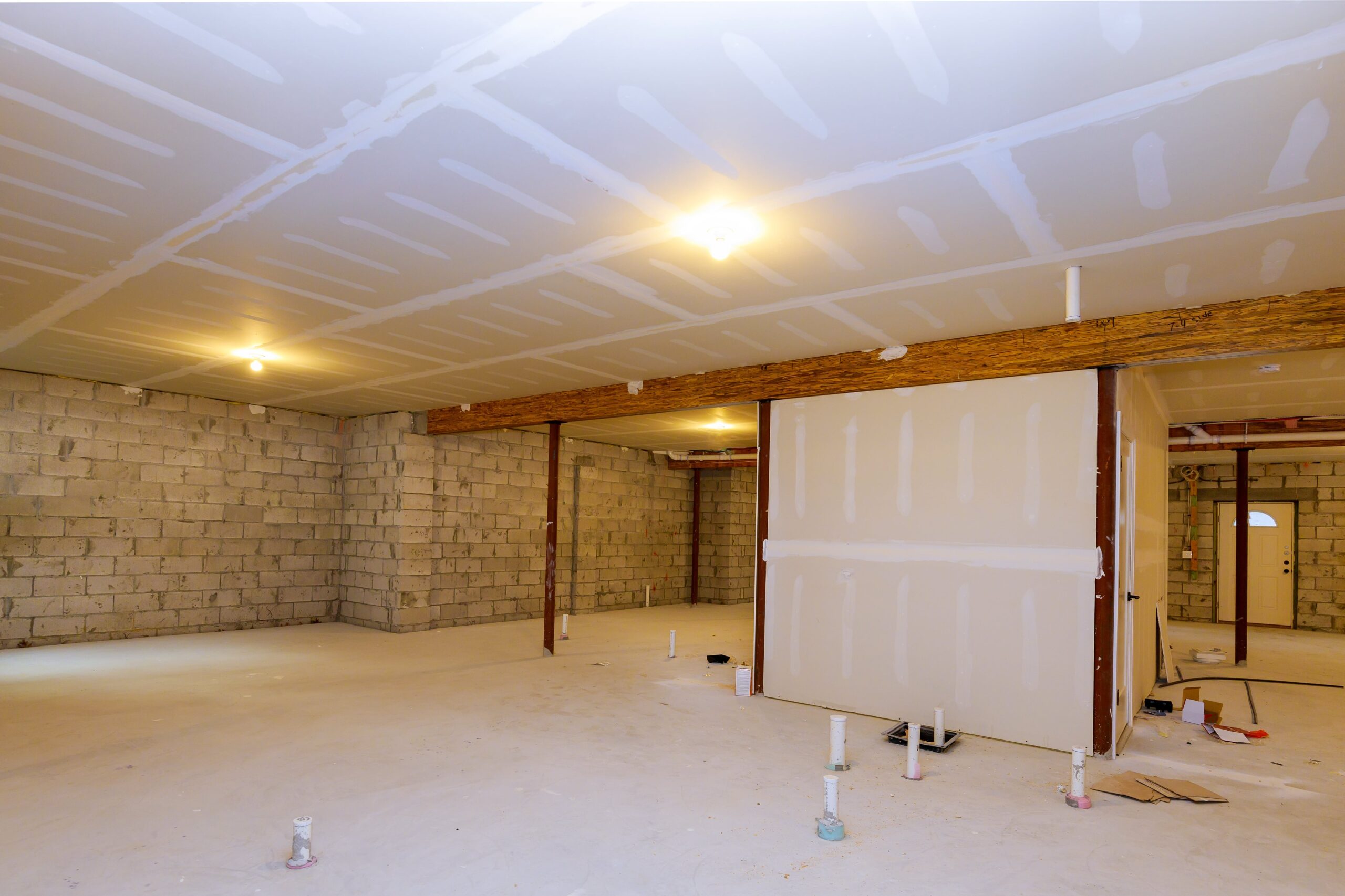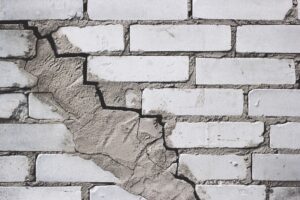Is your basement damp, musty, or prone to leaks? Have you noticed cracks in the walls or a lingering mildew smell? Basement sealing is one of the best ways to stop moisture problems before they turn into costly damage.
Water can seep through foundation cracks, collect in corners, and create the perfect environment for mold. Left unchecked, it can weaken your home’s structure, ruin stored belongings, and even impact your health.
Think about it—how much would it cost to replace water-damaged flooring or deal with a full-blown mold infestation? A lot more than taking preventive action now.
In this article, you’ll learn:
- Key signs your basement needs sealing.
- Best sealing methods for different basement conditions.
- DIY vs. professional solutions for long-lasting protection.
Why Basement Sealing is Essential
A wet basement is more than just an inconvenience. In fact, it’s a serious problem that can lead to costly repairs.
Without proper basement sealing, moisture can seep through foundation cracks, saturate basement walls, and create the perfect conditions for mold and mildew growth. If left untreated, this can weaken the concrete floor, cause structural damage, and lower your home’s value.
Water infiltration doesn’t just damage walls and floors. It also contributes to poor air quality. Mold spores thrive in damp environments, which trigger allergies and respiratory issues.
Plus, a leaky basement can lead to high humidity and even force your HVAC system to work harder while also increasing energy costs.
You can waterproof your basement and protect it from long-term damage simply by choosing the right waterproofing solutions, such as exterior waterproofing, interior sealants, and proper drainage systems.
A dry basement not only preserves your home’s foundation but also creates a healthier living environment.
Signs Your Basement Needs Sealing
A wet basement doesn’t always start with visible flooding. Small warning signs can indicate bigger water issues developing behind the scenes. Ignoring these red flags can lead to costly repairs, mold problems, and structural damage.
Here’s what to look out for:
- Musty odors and visible mold – If your basement walls smell damp or have black, green, or white mold patches, excess moisture is likely present.
- Efflorescence (white powdery residue) – This chalky substance on concrete walls means water is evaporating and leaving behind mineral deposits.
- Peeling paint or damp walls – Waterproof paint bubbling or peeling off is a sign of trapped moisture trying to escape.
- Pooled water or condensation – Standing water, damp spots on the basement floor, or condensation on windows indicate water seepage.
Different Basement Sealing Methods
Here are the different basement sealing methods.
1. Interior Sealants (Best for minor leaks and humidity)
If you have occasional dampness or minor condensation, interior waterproofing products like waterproof coatings and sealants can help.
Epoxy injections are useful for sealing small cracks in basement walls, which also prevents further water seepage. While these solutions don’t stop external water from entering, they help keep your basement dry by blocking moisture.
Another issue that can contribute to moisture problems is weeping tile backflow. When water that’s meant to be drained away from your home starts coming back in, it can lead to basement flooding. Installing a proper weeping tile backflow prevention system ensures water flows in the right direction, keeping your basement dry.
2. Exterior Waterproofing (Best for preventing major leaks)
For homes with recurring basement water issues, exterior waterproofing is the most effective solution.
This involves applying a waterproof coating or membrane to the foundation walls and installing drainage systems like weeping tiles to direct water away from your foundation.
Though expensive, it provides long-term protection.
3. Crack Repair Techniques (Best for structural cracks)
Cracks in concrete walls and floors allow water to enter the basement.
Hydraulic cement and polyurethane foam injections are commonly used to seal these openings. Hydraulic cement expands as it dries, which makes it a strong barrier against leaks.
4. Drainage Solutions (Best for high water tables and flooding)
If your home sits on a high water table or experiences basement floods, installing a sump pump or French drain can help move water away from your home. These systems actively pump out excess water before it accumulates.
Regular sump pump maintenance is key to ensuring it works when you need it most. A clogged or failing sump pump won’t do much to prevent water damage. Cleaning the pump, checking for blockages, and testing the system regularly can save you from unexpected flooding.
DIY vs. Professional Basement Sealing
Sealing a wet basement can be a DIY project or a job for a waterproofing contractor—but which option is best?
The answer depends on the severity of the water issues, budget, and long-term goals.
DIY Basement Sealing
If you’re dealing with small cracks in the basement wall or slight moisture buildup, waterproofing your basement with sealants and waterproof paint can be a cost-effective solution.
Simple DIY projects, like applying a waterproof coating or using hydraulic cement to seal cracks, typically cost between $200 and $1,000.
However, DIY methods only address surface-level problems and won’t stop water from entering the basement if there are common foundation problems.
Issues like shifting soil, poor drainage, or deep foundation cracks often require expert intervention. If you suspect deeper issues, it’s worth learning about common foundation problems to determine whether a professional repair is needed.
Professional Basement Waterproofing
For serious leaks, pooling water, or a basement flood, hiring a waterproofing service is the better option.
Professionals can install exterior waterproofing systems, sump pumps, or French drains to move water away from your foundation. While more expensive, with costs ranging from $3,000 to $10,000+, professional solutions offer long-term protection and increase home value.
When to Hire a Pro?
If water is coming through the walls, or if you see standing water, mold, or foundation damage, DIY fixes won’t be enough.
Hiring the best basement waterproofing company ensures proper drainage and prevents future water damage.
Maintenance Tips for a Dry Basement
Even after you waterproof a basement, regular maintenance is essential to prevent future basement water issues. A well-maintained basement stays dry and reduces the risk of water damage, mold, and costly repairs.
Perform Regular Inspections
Check basement walls, floors, and corners for cracks, damp spots, or signs of basement moisture. If you notice peeling waterproof paint or standing water, reseal affected areas immediately.
Keep Water Away from Your Home
Proper landscaping ensures that water flows away from your foundation. Adjust grading around your home and consider exterior waterproofing solutions like French drains if water pools near the walls.
Maintain Gutters and Downspouts
Clogged gutters can lead to water in the basement. Clean them regularly and ensure downspouts direct water away from the foundation by at least six feet.
Routine maintenance helps extend the lifespan of basement waterproofing solutions and protects your investment. If problems persist, consider consulting a waterproofing contractor for long-term fixes.
Conclusion
A wet basement might be a sign of potential structural damage, mold, and costly repairs. Recognizing early warning signs, such as standing water, musty odors, or basement wall cracks, can help prevent major problems.
The right waterproofing method depends on the types of basement issues you’re facing.
And if you’re experiencing basement water issues, now is the time to act. A sealed basement improves home value, air quality, and energy efficiency.
For professional help, contact Shield Foundation Repair—your trusted waterproofing contractor in Edmonton. Our team is ready to assess your basement waterproofing needs and provide a long-term solution.
Call 780-760-4900 today.





